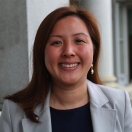
On Wednesday, May 4, the White House Office of Public Engagement and White House Initiative on Asian Americans and Pacific Islanders, which is housed within the Department of Education, kicked off Asian American and Pacific Islander (AAPI) Heritage Month by recognizing ten Champions of Change for AAPI Art and Storytelling. The Champions of Change program honors individuals doing extraordinary things to empower and inspire members of their communities.
AAPI Heritage Month is a time to celebrate the diversity and strength of the growing AAPI community. As the fastest growing racial group in the U.S., AAPIs trace their heritage to over 30 different countries and ethnic groups and speak over 100 languages and dialects. The challenges faced by AAPIs are as diverse as the communities they come from, and artists and advocates, through their unique channels and distinct platforms, have played a critical role in telling new stories, increasing awareness around key AAPI issues, and encouraging diversity and inclusion in all sectors of society.
The event featured remarks by Assistant to the President and Chief of Staff to the First Lady Tina Tchen and Deputy Policy Director for Immigration Manar Waheed and panels moderated by Phil Yu, blogger of Angry Asian Man, and Jeanny Kim, Acting Director of the Smithsonian Asian Pacific American Center.
As AAPI Heritage Month comes to a close, we again encourage YOU to share your own story with StoryCorps and #MyAAPIStory. Highlight issues you care about, share what your identity means to you, or interview others – friends, family members, or community leaders, for instance – that are making a difference for the AAPI community.
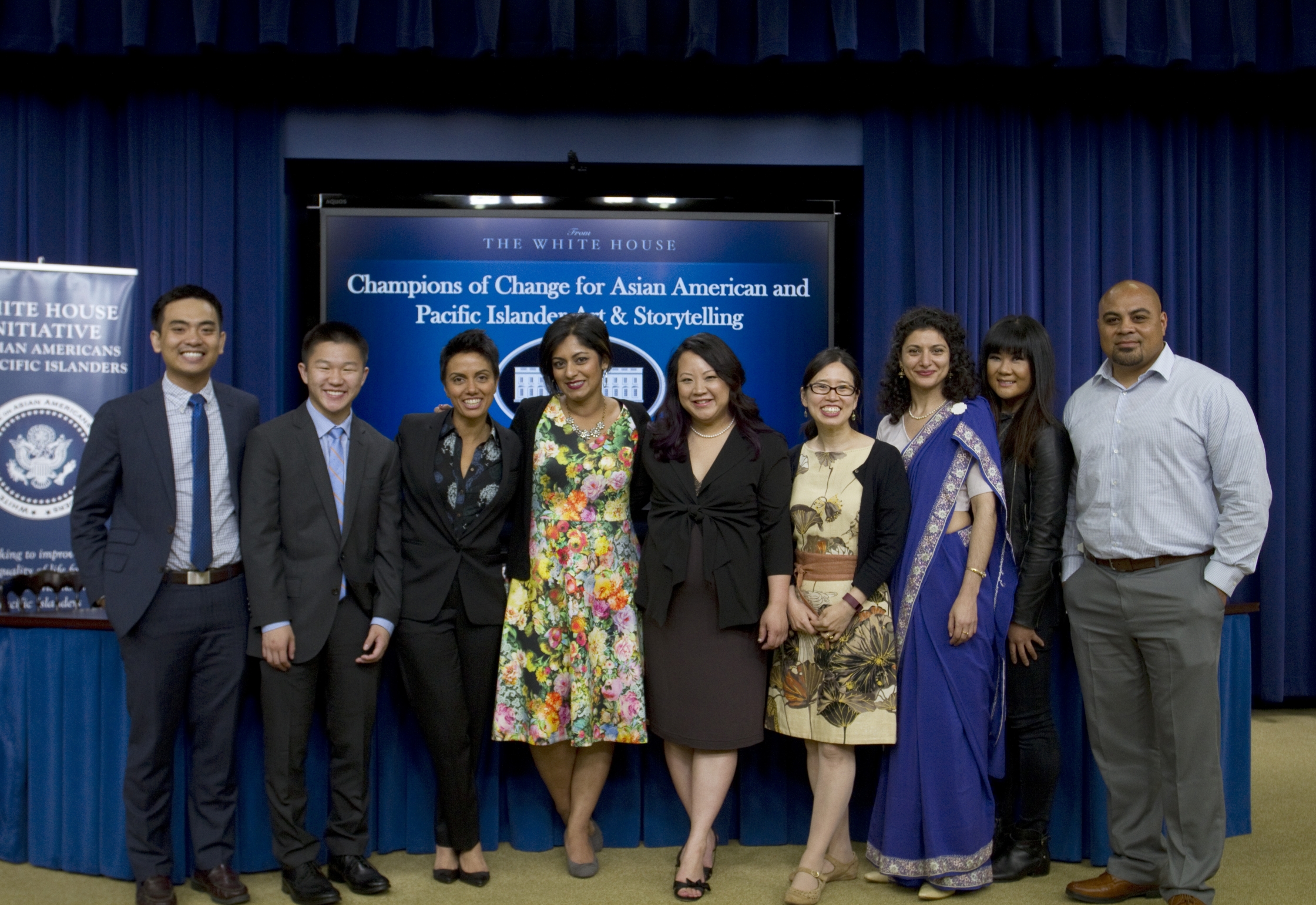
Before the event, the Champions of Change shared their reflections with us:
Tanzila "Taz" Ahmed
I had always been precise with how my needle pierced the embroidery cloth, careful to follow exact instructions. My mother’s stitches, on the other hand, were haphazard – the back of her embroidery always a tangled mess. My mother was what current pop culture refers to as a “maker” – she would sew us summer cotton dresses on her Singer machine and knit my dad V-neck wool cable knit sweaters. Her Bangladeshi dishes were made from recipes stored from homeland memories and her garden was lush with homeland vegetables whose seeds she had bartered from her community. She sang too, these classic Tagore songs read out of song books with worn pages in blue-inked hand-scripted Bengali. She’d sing them sitting on the floor breathing air into the bulky harmonium we had painstakingly brought over from Bangladesh.
I think often about this art that my mother danced to survive as an immigrant in the United States after she immigrated here in 1979. She was dancing through her story and creating her own hyphenated culture in her new world survival. When I think of how I define art, it is this magic I think of – not the Western art that grade school taught me to believe. When she left this world, it was her life’s existence that was my catalyst.
When I started my South Asian American political organizing career in the aftermath of September 11th, I was struck by how little I knew of the legacies of struggle that played at the intersection I lived, as an American Muslim, Brown feminist and a South Asian radical. My legacies had been marginalized and in that process my identity had been invisibilized. I realized that if I were to get people engaged in gaining political power, that the community I wanted to empower needed culture shifting and to have their life stories re-centered. They needed space to re-imagine and they needed love to be held.
My journey as an activist-artist has taken me on path of telling the counter narrative of the South Asian and Muslim community – through poetry, visual art, or non-fiction essays. I wasn’t seeing the stories in the public sphere that I needed to see to make me feel whole – so I created them. Through Bay Area Solidarity Summer, we created the camp we as South Asians activists wish we had as a youth and gave them the tools to know their legacy as Brown activists was rooted in a rich history. Through my Radical Love column, where I learned to find my writing voice in the aftermath of grief, I found that vulnerability of voice as a key way to move hearts and minds. Through my #MuslimVDay cards, I disrupted the mainstream perceptions of Muslims who love through satire. And through the #GoodMuslimBadMuslim podcast, we are decolonizing how we as Muslim women are allowed to exist and laugh about it.
My mother’s art helped her re-imagine her survival story. I hope that how I art can help reimagine, re-center and decolonize my survival story, and my community’s survival story, too. So that our survival may simply be just living.
Tanzila "Taz" Ahmed is Co-Host of Good Muslim, Bad Muslim, a podcast focused on breaking down stereotypes of Muslim Americans. She is also a writer/author, having recently published a book of poetry, and a monthly column regarding Muslim women titled Radical Love.
Selu Alofipo
My name is Selu Alofipo, son of Saolotoga and Sophronia Alofipo. My late father hails from the village of Saleaula, Savai’I and my mother was raised in Malaela, Upolu. I was born and raised in a small village called Vaitoloa also in Upolu. Savai’I and Upolu are island chains in what is affectionately known as Samoa. My favorite Samoan Proverb is “Ole ala ile Pule ole Tautua”— “The path to leadership is through service.” I believe that to understand where one is going, one must know where he came from. Although I am very proud of my heritage, I am extremely thankful for the blessings and opportunities made available to me in this great country.
I am keenly aware of the struggles and sacrifices my parents made to get our family to this country. For that, I am eternally indebted. I vigorously carry a great responsibility to improve upon the foundation that was so carefully laid before me. I am honestly humbled and even embarrassed at such a great honor for something that I consider to be a normal expectation of a citizen of this country.
My journey as an artist began as an act of desperation. I wanted more; I wanted better, and I expected both. I simply got tired of getting by. I have a college education; I played Division I football and started every year I played; I am healthy and strong, I am blessed with certain abilities and gifts. Why then was I living on food stamps? Why was I struggling to get bills paid? Why could I not take my family on awesome vacations? Why am I not better? These questions burned inside of me and it literally brought me to my knees. I decided to take action and begin creating! With very little materials to work with, I gathered whatever was in my garage and began working. Each step I took led to another “bread crumb” that lead me to more ideas. I acted upon inspiration and brought to life something I was very proud of. My work kept me up at nights and inspiration kept coming like a leaky faucet. I began consuming books not only about art but about life, about amazing people, and anything that looked interesting!
I find it strange that I am being honored for my artwork that has presumably inspired many. Everywhere I go, people recognize me as “Selu the artist” – the guy who travels the country, appears on TV, has stories written about him, is invited to organizations to speak, and has collectors from all over the world purchasing his work. Little do they realize that I am an ordinary guy who was a counselor for the state of Utah, a roofer, a financial advisor, a high school football coach, a solar energy consultant, a digital marketing consultant, and yes, an ARTIST. I am simply a guy who wants more and expects more. It is my sincere desire and hope that all of my Polynesian brothers and sisters will find within themselves the resolve to be better and the courage to find that hidden jewel inside of them and begin taking steps towards their best thoughts and interests. Begin creating!
Selu Alofipo is an expressionist artist and founder of Selu Alofipo Fine Art. He is from Salt Lake City, Utah.
Quang Do
As a spoken word artist and student development professional I am keenly aware that social change and activism has been and will continually be deeply rooted in the rich histories of art and storytelling. With age and experience, I’ve started to better understand the responsibility that I have as an artist and educator to advocate for all stories, not just mine, to be heard.
In 2012, I developed a program at the University of Alabama at Birmingham called “Poetic Justice: Words for Change,” with a focus on helping students develop cultural, interpersonal, and social understanding through the writing and performance of spoken word poetry. At the end of the year, they performed their poems to a theatre filled with their families and friends with heart-wrenching, deeply personal and transformative poems about dismantling the “model minority” myth to the social stigma surrounding interracial relationships. Over the years Poetic Justice has grown beyond my wildest dreams but the core idea has remained the same – change happens when we are willing to listen to each other.
When developed as a platform for change, spoken word, like all art, can be used a tool for transformation and to give people a voice to be heard in a world where words rule. As an AAPI community, we cannot underestimate how spoken words power to move us, challenge others, create change and connect us. We must be willing to bring up difficult conversations that often have complicated, difficult, and multilayered intersectional answers. We must invest (not only financially but physically and emotionally) in and develop spaces where we can regain ownership over our narratives.
Quang Do is a Coordinator of Student Leadership at University of Alabama at Birmingham, where he serves as a student affairs professional. He is also the Slam Master and Director of Radio Free Alabama’s Iron City Slam, a Birmingham-based arts non-profit organization.
Jason Fong
We were reading Huckleberry Finn in English class and discussing Black and white race relations. I was participating in the discussion when another student said, “What does this have to do with you?” I told him that as a student in the class, I had every right to participate in the discussion and have an opinion.
When did it become okay for people to consider Asian Americans and Pacific Islanders (AAPIs) as not worthy of having opinions? When did it become okay to discuss social issues like race relations without including the voices of the fastest growing racial group in America?
Our current absence from the national discourse will continue unless our voices become too loud to ignore. This requires a concerted effort by all of us to ensure that we speak out – often, loudly, annoyingly, and persistently – whenever we see injustice. And it also requires us to build our own platforms from which to share our stories. Thus, even small and organic platforms like #MyAsianAmericanStory can be important starting points for our community so that we can further foster a culture of activism, speaking out, and getting LOUD! Since August of 2015, the tag has been used over 25,000 times and thousands of AAPIs shared stories, photos, secrets, and histories about their experiences in America. By sharing our stories, we not only made AAPI history come to life, but we also made American history more complete, accurate, and reflective of her people. We showed that American history isn’t complete without AAPI voices.
I hope that in the near future, no national discussion of politics, public policy, economics, and culture will be considered complete without a meaningful inclusion of our diverse perspectives. As Americans, AAPIs know that these issues have everything to do with us.
Jason Fong is the creator of #MyAsianAmericanStory and a junior at Redondo Union High School in Redondo Beach, California, where he is a varsity wrestler and writer for the school newspaper.
Leslie Hsu Oh
Raised by a photographer, I grew up understanding the power of art, how it could heal long after the life of its creator. “What story are you telling?” Mā Ma would ask as we waded through white waters or leaped onto a horseback with the weight of a camera around our necks. In nearly fifty American and Canadian national parks, my aesthetic developed in the natural world, places woven with indigenous knowledge, bled in streambeds, trapped in rock layers, eroded in the earth.
When I was a freshman in college, my seventeen-year-old brother was diagnosed with liver cancer caused by hepatitis B. He died shortly after his 18th birthday. Words were the only way Mā Ma and I could make meaning out of senseless events in this world. She wrote a memoir without mentioning hepatitis B, eliminating the fact that a week after my brother died she was diagnosed with the same disease. I lost her the following year.
Though I founded the Hepatitis B Initiative which has saved thousands from suffering my tragedy for nearly twenty years so far, I realized that I could end the silence cloaking this disease and other stigmas through art. I’m working on a memoir which will contain secrets which my family will not allow me to share publically unless it is packaged as art. I hope my work empowers others to say the things they fear can’t be said.
Ursula Knoki-Wilson gave me a Navajo name meaning journey to bring out gifts. Ultimately, this is my goal as a storyteller and photographer. I’m searching for the cracks, the things we regret, the secrets we keep. I’m listening for sounds that people wouldn’t normally hear, like settling wood.
Leslie Hsu Oh is an award-winning writer whose work has been named among the distinguished stories of the year by Best American Essays.
Kayhan Irani
How does a working class, immigrant girl develop a sense of herself as central to her society and grow up to be both an artist and a fighter for social justice…? Through Mary Poppins, of course!
It didn’t matter that Mary Poppins could fly or make things appear and disappear. To me, the magical character was the mother, Mrs. Banks, a suffragette and women’s rights activist. Seeing that character – in the 4th grade – inspired me to write my first play. It told the story of a woman who was organizing for voting rights while also enduring an abusive marriage. At her grand rally she’s killed by a hit-man her husband hired – but her death spurs the women on to victory! I’ve become a little less melodramatic as I’ve aged, but I continue to center the stories of women, immigrants, working class families, and those whose heroism is often unrecognized.
Whether it’s through writing fictional stories for my Emmy award-winning series, We Are New York, or gathering essays for my volume Telling Stories to Change the World, I’m dedicated to constructing powerful and dignified worlds to activate our creative, empathetic impulses. Art making gave me the tools I needed to withstand the hurts of living in a place that didn’t always have hopeful and accurate depictions of myself or my people. Having the power to create my own stories was the most crucial part of my development as an engaged citizen in this society.
Kayhan Irani writes creatively and designs socially engaged arts-projects locally, nationally, and internationally.
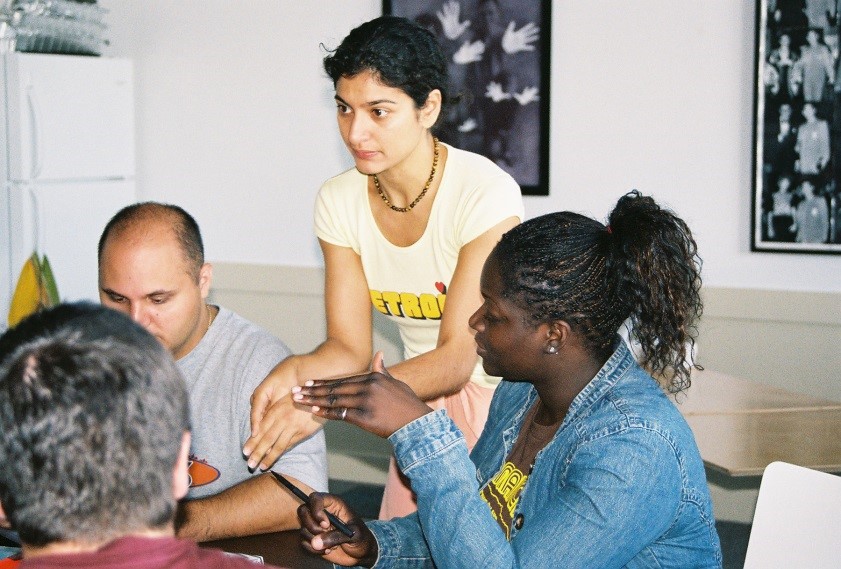
Grace Lin
When I was a child, there were two things everyone knew about me. One was that I loved books and the other was that I was Asian. Growing up in almost all-white community, I was never comfortable with my ethnicity. I spent most of my time trying to forget I was Asian. I felt like no one looked like me anywhere – not in school, not on TV, not in magazine or movies... and, most importantly, not in the books that I loved.
This love of books stayed with me all through childhood to adulthood, so much so that creating books is what I now do for a living. But my feelings about my ethnicity changed. After a lifetime of being ashamed and trying to hide it, being Asian is now an important part of my identity. Most of my books feature Asian characters and Chinese culture because they are the books I wished I had when I was a child.
When I talk about the books that I make (as I do in my recent TEDx talk), I often use the metaphor of "windows and mirrors." Books, like a window, can show you a view outside of yourself. But books can also be like a mirror – showing you a reflection of yourself. I know that if any of the books I had loved as a child had been a mirror, reflecting a person that looked like me, many moments of insecurity and loneliness would have been erased. I hope that my books can do that for young Asian American readers of today.
Grace Lin is a children's book author/illustrator of many picture books, early readers and middle grade novels. Her novel "Where the Mountain Meets the Moon" was awarded the Newbery Honor and was a New York Times Bestseller.
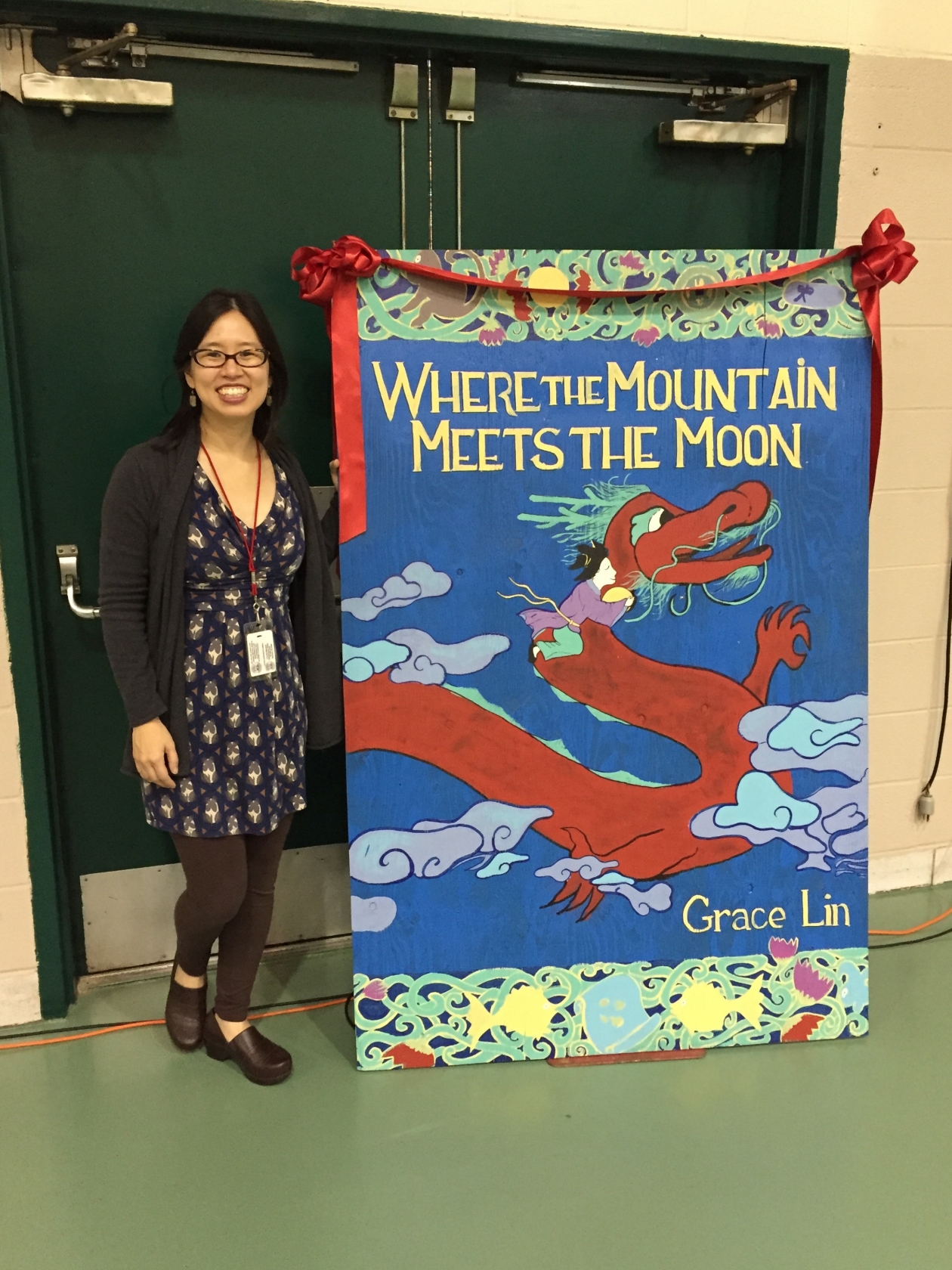
Fawzia Mirza
I decided having a successful career as an actor wasn't hard enough, I wanted to make it harder: on a lawyer’s debt. You see, like a good South Asian daughter, I fulfilled the dreams of my family and became an attorney, but it soon became clear that my dreams lay elsewhere. As I pursued acting, I noticed that as a Pakistani, Muslim, queer, woman, I didn’t see roles that reflected even ONE of my identities accurately, much less all of them. I grew tired of being told that I wasn’t ‘enough’ of any one of my identities to play them in movies or on television. So, instead of waiting to be cast or waiting for someone to make my Slumdog Millionaire, I decided to produce my own content. My first short film The Queen of My Dreams was a very public grappling about a very personal conversation in my head regarding identity. As I began telling more of my own stories, it was cathartic and a way of coming out, overcoming shame and creating space for me and others like me. Art and comedy have become my favorite tools for survival and a way of sifting through my own complex identity and experiences. I decided that I didn’t have to give up where I came from to be who I am; I just had to recognize that some folks just aren’t going to like it.
Fawzia Mirza is an actor, writer, and producer based in Chicago, IL.
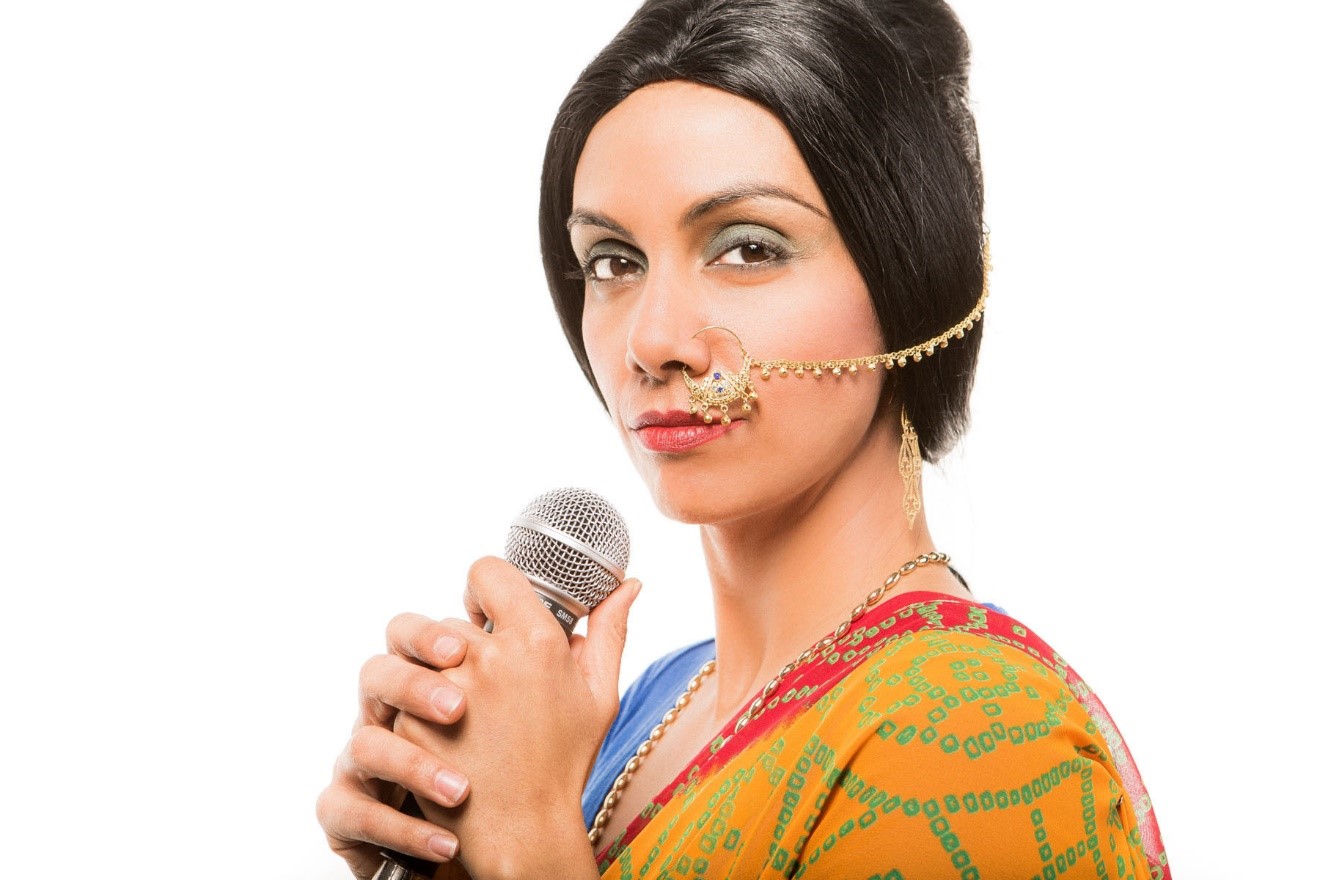

Jenny Yang
I am a stand-up comedian. I shout my jokes, ideas and stories on video, in audio, on paper and in real life. I am often told that I am a “loud Asian.”
You’d be loud too if everything around you says you don’t deserve to be heard.
I am the daughter of a garment worker and a former professional in politics. Then I realized my job wasn’t to follow talking points anymore.
I needed to write my own script.
I exist to tell you the things you don’t want to hear.
All the ugly things. The shameful things.
And make you laugh so you will listen.
My work is to help us imagine that another world is possible. We don’t have to accept what is.
That we can stop asking for permission and stop seeking others to tell us who we are.
I am an organizer of Asian American creatives and audiences. I produce live comedy and storytelling events through the Disoriented Comedy tour, the first-ever mostly female Asian American standup comedy tour, and The Comedy Comedy Festival: A Comedy Festival, a celebration of Asian Americans in comedy with a diversity showcase on the side for straight white guys. I believe that those who are not typically seen on mainstream stages deserve a platform.
This work was not what my parents expected when they brought my family to Taiwan when I was just five years old. But it is what makes me feel happy and fulfilled, and it is my small way of serving the tremendous needs of our Asian American and Pacific Islander communities.
Jenny Yang is a Los Angeles-based writer, stand-up comedian, actor, host, and frequent collaborator on viral Buzzfeed videos. Drawing from her former career in politics, Jenny is a regular commentator on politics and pop culture with contributions featured in National Public Radio, The Guardian, NBC News, BBC News, Complex Magazine, Al Jazeera America, Southern California Public Radio, ISAtv, and Pivot TV.
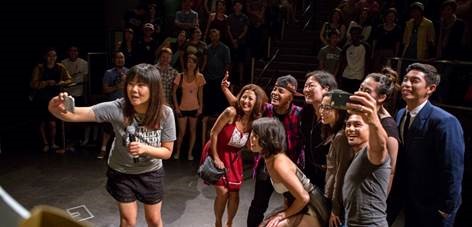
Hinaleimoana Wong-Kalu
My name is Hinaleimoana Kwai Kong Wong-Kalu, but most people call me Kumu, or teacher, Hina. I'm Kanaka Maoli, or native Hawaiian. I was born as my parents' son, Collin, but in my twenties transitioned to become their daughter, Hinaleimoana, which means Hina encircling the sea.
All through school I was teased and put down for being a “sissy,” “faggot,” or “queer.” Worst of all was being called “māhū” – a Hawaiian word – because I didn't know its meaning. My teachers were no help, even at Kamehameha Schools, an institution founded by Princess Bernice Pauahi Bishop to educate young Hawaiians.
Today, all that has changed.
I am a graduate of the Kamakūokalani School of Hawaiian Knowledge at the University of Hawai'i, fluent in Hawaiian and three other Polynesian languages, a cultural consultant for many organizations, appointed by the Governor to Chair the O'ahu Island Burial Council, and a respected teacher charged with educating students about our history, traditions and philosophy.
Most importantly, I understand the meaning of māhū: a Hawaiian term for those born “in the middle” who embody both kāne (male) and wahine (female) spirit. Prior to Western contact, Hawaiian society embraced māhū as caretakers, healers, and teachers of ancient tradition. But colonization and Christianity led to many changes, including turning māhū from an honorific to a derogatory term.
Since ancient times, Hawaiians have transmitted their knowledge and wisdom through storytelling. I'm fortunate to now be in a position where I can use my storytelling abilities to help restore māhū to its proper place as a word of pride, dignity and respect.
In my classrooms, I make sure that every student has a “place in the middle” where they are judged not by their gender but on their work and accomplishments. And I strive to ensure that amongst the many contributions of our Hawaiian ancestors that are taught in our schools, from the long voyages of our great navigators to the sustainable use of our lands, we include the Hawaiian understanding of aloha – love, honor and respect for all, including māhū.
Hinaleimoana Wong-Kalu is a native Hawaiian teacher, cultural practitioner, and community leader based in Honolulu, on the island of O’ahu.
